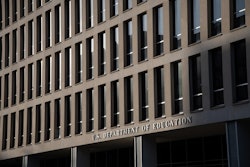JACKSON, Miss. — Mississippi University for Women, the University of Mississippi and Alcorn State University will get financial boosts under a new formula to distribute state money among Mississippi’s eight public universities.
The College Board approved the formula Thursday without amendments, although some members had objected in a recent committee meeting to funding levels for nonresident students.
Higher Education Commissioner Hank Bounds said the new formula is meant to more fairly distribute state aid among the schools. In recent years, individual university shares of state funding have remained frozen, even as enrollments have shrunk at some schools and grown at others.
For the budget year starting July 1, the plan would boost funding for some universities, but wouldn’t cut money to any school.
The formula would give money to cover overhead costs, with smaller schools getting larger shares. Then it would distribute most remaining money to schools based on courses completed by students, with graduate and technical courses worth more than basic undergraduate courses. Finally, some money would be given to universities that meet board goals, such as graduating students with low test scores, getting students out of remedial courses and into college-level work, or increasing outside research money.
“While no model will ever be perfect, and while it is likely that no university will agree with all aspects of the model, we believe that this model produces an overall result that is fair and equitable to all,” trustee Alan Perry, who chairs the board’s Finance Committee, said. His statement added that the model, because it is based on completed courses and not just enrollment, gives incentive to each university to become more effective.
State money allocated from a pot of $340 million would rise the most, at 6.6 percent or $904,000 at MUW. Other gainers would include Alcorn, where aid would go up 5.7 percent or $1 million; Ole Miss, where aid would go up 5.5 percent or $3.9 million, and MSU, where aid would go up $623,000 or 0.7 percent.














